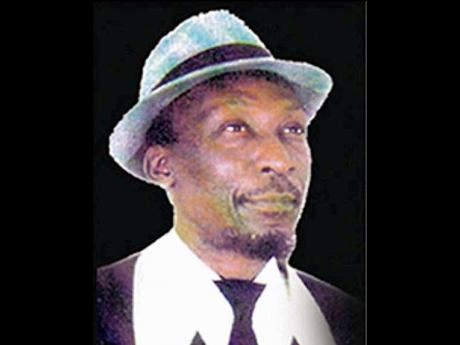Vintage Voices | Remembering Alton Ellis ‘The Godfather of Reggae’
The eighty-first birth anniversary of the late iconic Jamaican singer Alton Ellis, which occurred last Sunday, revives memories of a man whose contribution to Jamaica’s popular music remains unmatched. One of the memories that has often been overlooked was his constant lobbying, through his music, for the eradication of the scourge of crime at a time when the malady began to rear its ugly head in the early 1960s. The recordings are, perhaps, more applicable today than they were then given the catastrophic upsurge in criminal activity that has engulfed the nation.
In a 2004 interview with Ellis, in the cool surroundings of Sonic Sounds Recording Company, along Retirement Road, he said: “It was a time when I was anti-bad boy. Never like the bad boy business that began to creep up inna the country.” He expressed his disgust in the recordings Dance Crasher, Cry Tough, Blessing of Love, and The Preacher –all done for producer Duke Reid’s Treasure Isle label.
Interestingly, Ellis had walked the streets for nearly two years after leaving his first producer, Clement ‘Coxsone’ Dodd, before joining Treasure Isle Records. In the interview, he explained: “I left Coxsone and walked the streets for about 18 months ‘cause me and Coxsone couldn’t take tea because it’s one game him play:‘all is mine’. And that is why I didn’t have a lot of ska tunes as I was off the scene for a while.”
After his initial setback at Coxsone (Studio 1 was not yet in operation), Alton said: “I put a group together, Alton and The Flames, and went to Treasure Isle, and there, we recorded our first set of songs as Alton and The Flames with Edgar Gordon, Winston Jarrett, and a guy named Prince comprising The Flames. Dance Crasher was one of the earliest we did.” In the recording, Ellis warned,
Dance crasher
Don’t break it up
Please don’t make a fuss
Don’t use a knife
To take somebody else life
As the conversation progressed, Ellis took us back to his earliest days in the entertainment business while setting the record straight about the genesis of his career: “It wasn’t Coxsone or Duke Reid, enuh. It was Vere Johns. I started there as a dancer, and after winning a couple prizes, about two years after, I switched to singing alone as Alton Ellis. I wasn’t doing too bad or too good when a friend of mine named Eddie Parkins, who was living at Seventh Street (I was living at Fifth Street) suggested that we put a group together. We started practising every evening. At first, people tried to put us off with some negativity. However, we took it from there when a friend wrote some words and gave me, and I put melody to it and took it to Coxsone in 1957.”
That recording was Muriel. Credited to Alton and Eddie, and cast in the R&B mould, it became a big hit in Jamaica and in the United Kingdom and was also one of the biggest R&B records ever recorded in Jamaica. According to Ellis, “When I went to England 10 years later, on a tour with the Soul Vendors band, Muriel was still a big hit there.”
But apart from its popularity, Muriel became a landmark recording insofar as it relates to its status with the entity later to be known as Studio 1. According to Ellis, “With Muriel, I gave Coxsone his first hit for marketing purposes. All the other recordings at the time, like Easy Snappin, were made for his sound system. It was on the back of songs like Muriel that Coxsone got his act together and came with Studio 1.”
Alton and The Flames’ next move, to producer Duke Reid’s Treasure Isle Records, proved to be a major stepping stone in Ellis’ career. Following close on the heels of his anti-rude boy songs, Ellis, with musical backing by experts Gladstone Anderson (piano), Paul Douglas (drums), Hux Brown (rhythm guitar), Lyn Taitt (guitar), and Jackie Jackson (bass), created what must surely have been the first glimpse of the rocksteady beat with Girl I’ve Got A Date. According to Jackson, who created the infectious bass line that was later copied by others, “I can safely say it was recorded in 1965.” Rocksteady came on stream proper somewhere between late 1966 and early 1967 and had the shortest lifespan of all the Jamaican genres. Ellis followed up at Treasure Isle with a plethora of hits in the rocksteady and reggae mould that gained for him the title ‘The Godfather of Reggae’.
Thereafter, he vacillated between several local producers during the 1970s. His anti-rude boy stance continued with the Keith Hunson-produced Big Bad Boy while Lloyd ‘The Matador’ Daley got a piece of the action with Lord Deliver Us and Back to Africa. They were, perhaps, his most outstanding pieces just before taking up residence in the United Kingdom in 1973 and forging a career that started out shakily but eventually went from strength to strength until his untimely passing on October 11, 2008, at age 70.



